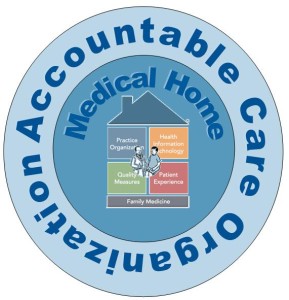Drugs of Abuse: What Clinicians Need to Know Now
A very good slideshow was posted on Medscape on September 9, 2013.
Watch slideshow
Contributor Information
Christopher D. Rosenbaum, MD, MS
Director of Medical Toxicology
Emergency Medicine Physician,
Newton-Wellesley Hospital
Newton, Massachusetts
Hemoglobin A1c – Test Regularly
Hemoglobin A1c (glycated hemoglobin) is the preferred diagnostic test for diabetes mellitus, and should be done regularly in diabetic patients.
Among its advantages over fasting glucose values (or 2-hour glucose values during an oral glucose tolerance test) is that samples can be drawn at any time and need no special handling (whereas ongoing glycolysis can falsely lower glucose values).
More detailed description >>>
Moderate Coffee Consumption Reduces Risk of Diabetes
 Drinking three to four cups of coffee per day may help to prevent type 2 diabetes by up to 25 percent according to research highlighted in a session report published by the Institute for Scientific Information on Coffee (ISIC), a not-for-profit organization devoted to the study and disclosure of science related to coffee and health.
Drinking three to four cups of coffee per day may help to prevent type 2 diabetes by up to 25 percent according to research highlighted in a session report published by the Institute for Scientific Information on Coffee (ISIC), a not-for-profit organization devoted to the study and disclosure of science related to coffee and health.
Recent scientific evidence has consistently linked regular, moderate coffee consumption with a possible reduced risk of developing type 2 diabetes. An update of this research and key findings presented during a session at the 2012 World Congress on Prevention of Diabetes and Its Complications (WCPD)… Continue reading
Coffee May Help Prevent Breast Cancer
 Drinking coffee could decrease the risk of breast cancer recurring in patients taking the widely used drug Tamoxifen, a study at Lund University in Sweden has found.
Drinking coffee could decrease the risk of breast cancer recurring in patients taking the widely used drug Tamoxifen, a study at Lund University in Sweden has found.
Patients who took the pill, along with two or more cups of coffee daily, reported less than half the rate of cancer recurrence, compared with their Tamoxifen-taking counterparts who drank one cup or less.
The team followed over 600 breast cancer patients from southern Sweden for an average of five years. Approximately 300 took Tamoxifen. The drug, a common hormone therapy after breast cancer surgery, reduces the risk of new tumours by blocking… Continue reading
Coffee Consumption Lowers Risk of Liver Disease
Article source: news.google.com
A good cup of coffee really helps one shake off the cobwebs before starting the day. Fortunately, a new study from researchers at the Mayo Clinic reveals that drinking coffee has an added benefit: regular imbibing of this delicious drink is linked with a lowered risk of primary sclerosing cholangitis (PSC). PSC is an autoimmune liver disease that is very rare.
Study author Craig Lammert, a Mayo Clinic gastroenterologist, says that PSC isn’t kind to the body and can lead to cirrhosis of the liver, liver failure and biliary cancer. According to Dr. Lammert, this discovery… Continue reading
Cost of Healthcare: Down or Up
 There is little doubt that we are all in for lots of surprises when it comes to healthcare. Guaranteed for a few years to come. Delivery and cost of care is everybody’s concern.
There is little doubt that we are all in for lots of surprises when it comes to healthcare. Guaranteed for a few years to come. Delivery and cost of care is everybody’s concern.
One of the health care overhaul’s most far-reaching provisions prohibits health plans from refusing to cover people who are sick or charging them higher premiums. Still, for people with serious medical conditions, the online health insurance marketplaces present new wrinkles that could have significant financial impact.
Rx For Docs: AMA Answers Obamacare Questions
 As we get closer to 2014, consumers are being surrounded by news coverage, ads and opinions about the health law. And many of them are turning to their doctors for advice. The American Medical Association has a website to help doctors answer frequently asked questions that physicians hear from patients, such as “Why should I care about the health reform law?” (the answer notes that as of Jan. 1, most people will have to have insurance or pay a penalty) and ”Can I keep my own doctor?” (answer: “That depends on the plan you choose… Continue reading
As we get closer to 2014, consumers are being surrounded by news coverage, ads and opinions about the health law. And many of them are turning to their doctors for advice. The American Medical Association has a website to help doctors answer frequently asked questions that physicians hear from patients, such as “Why should I care about the health reform law?” (the answer notes that as of Jan. 1, most people will have to have insurance or pay a penalty) and ”Can I keep my own doctor?” (answer: “That depends on the plan you choose… Continue reading
Florida Medicaid Coverage of Routine HIV Screening
Introduction
The Centers for Disease Control and Prevention (CDC) recommends that HIV screening be a part of routine medical care for all patients between the ages of 13 and 64. These recommendations are intended for all health care providers in both the public and private sectors. Medicaid is the largest source of care and coverage for people with HIV/AIDS in the United States, but routine HIV screening for adults is an optional Medicaid benefit which states may choose to cover.
HIV Screening
HIV testing is integral to HIV prevention, treatment, and care efforts. Knowledge of one’s HIV status is important for preventing the spread of disease.
Yet the CDC estimates that of the more than 1.1 million people living with HIV/AIDS in the U.S., almost one in five (18%) do not know they are infected. To increase HIV testing rates and knowledge of HIV status, CDC released revised screening guidelines in 2006, recommending, for the first time, routine HIV screening in all health care settings for 13 to 64 year-olds, unless a patient opts out. Routine HIV screening is broad, population-based screening, in contrast with “medically necessary” testing and testing targeted at those at higher risk. The CDC’s routine HIV screening recommendations are intended for health care providers, who are central to their implementation in clinical practice.
YouToons Get Ready for Obamacare
2014 is coming–are you ready for Obamacare? Join the YouToons as they walk through the basic changes in the way Americans will get health coverage and what it will cost starting in 2014, when major parts of the Affordable Care Act, also known as “Obamacare,” go into effect.
Written and produced by the Kaiser Family Foundation. Narrated by Charlie Gibson, former anchor of ABC’s World News with Charlie Gibson and a member of the Foundation’s Board of Trustees. Creative production and animation by Free Range Studios.
ACO – the Hottest Three-letter Word in Health Care
 One of the main ways the Affordable Care Act seeks to reduce health care costs is by encouraging doctors, hospitals and other health care providers to form networks to coordinate care better, which could keep costs down.
One of the main ways the Affordable Care Act seeks to reduce health care costs is by encouraging doctors, hospitals and other health care providers to form networks to coordinate care better, which could keep costs down.
To do that, the law is trying a carrot-and-stick approach in the Medicare program: Accountable Care Organizations. ACOs have become one of the most talked about new ideas in Obamacare. Providers get get paid more if they keep their patients well. About four million Medicare beneficiaries are now in an ACO, and, combined with the private sector, more than 428 hospitals have already signed up. An estimated 14 percent of the U.S. population is now being served by an ACO. You may even be in one and not know it.
While ACOs are touted as a way to help fix an inefficient payment system that rewards more, not better, care, some economists warn they could lead to greater consolidation in the health care industry, which could allow some providers to charge more, if they’re the only game in town.

